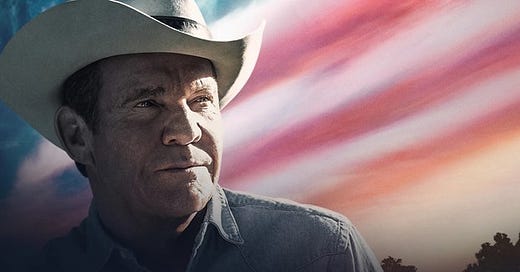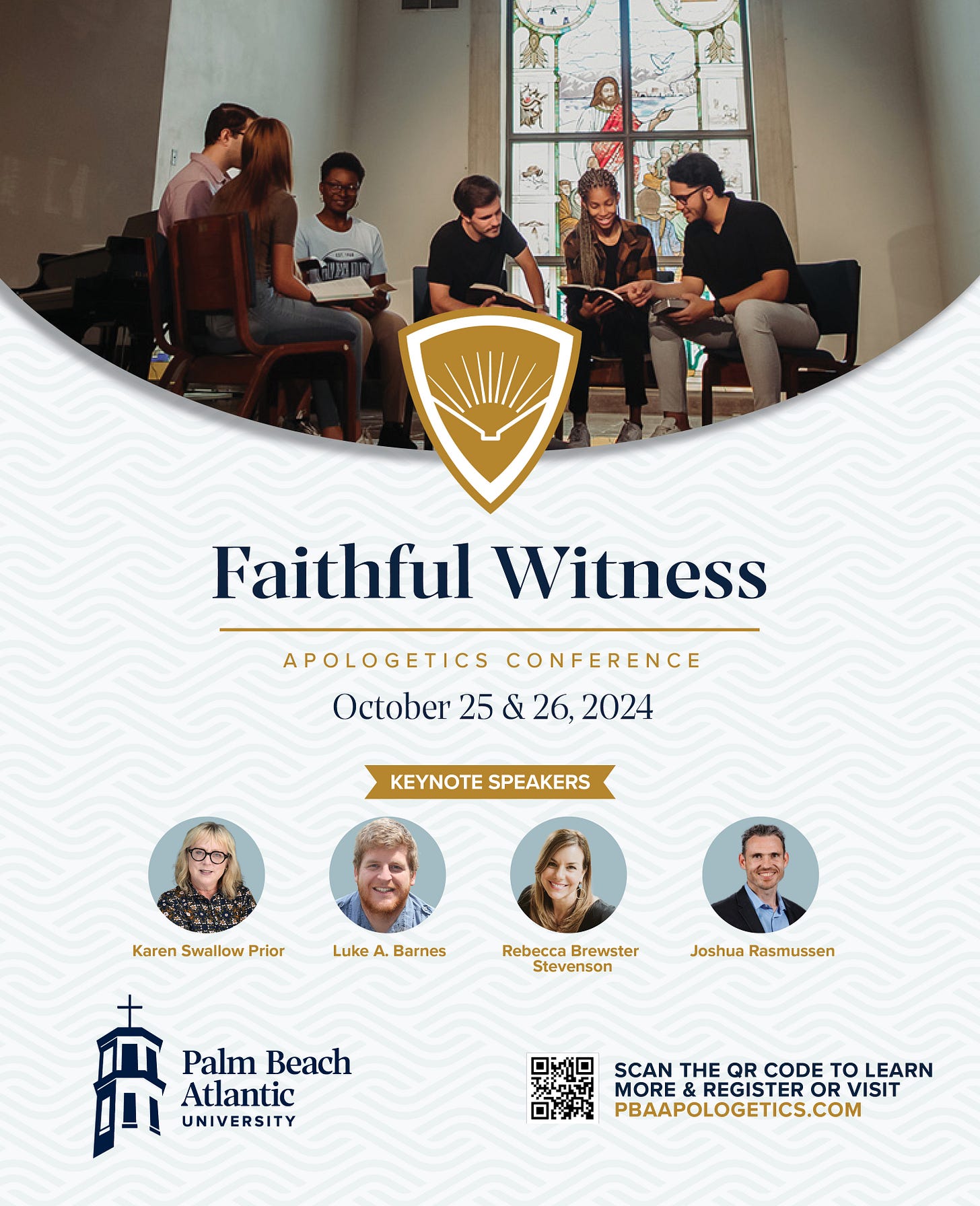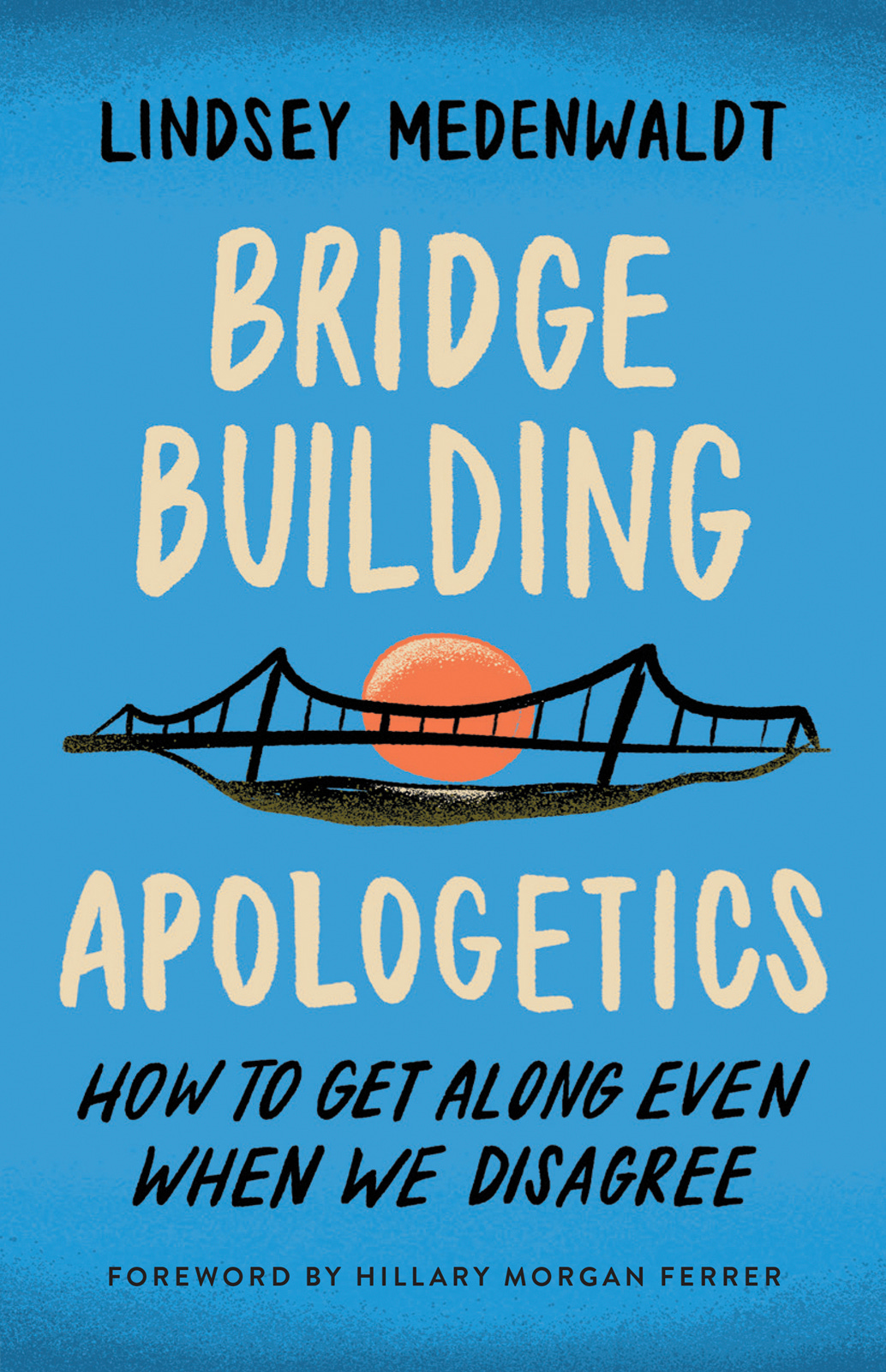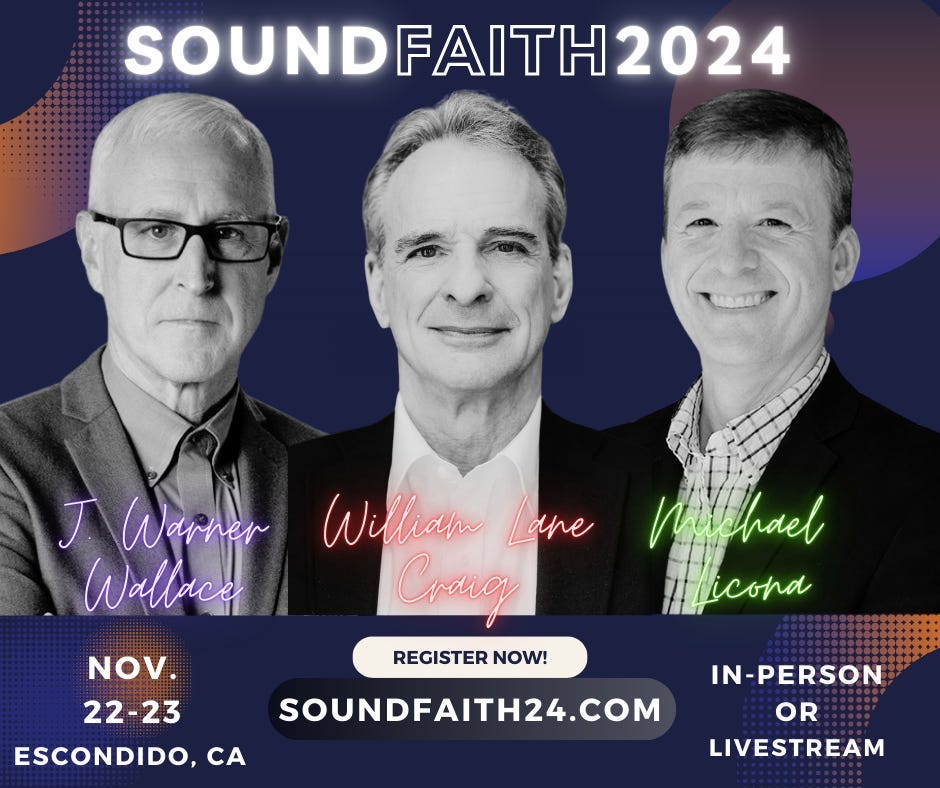The film Reagan, while largely panned by critics (as I expected, given its conservative message), is well acted, dramatically compelling, and historically accurate. But it is also a sign of contradiction to our zeitgeist and political landscape. By recounting the life of Ronald Wilson Reagan (1911-2004), the 40th President of the United States, this film represents a worldview, a political philosophy, and a mode of statesmanship that has largely left the American scene, and we are far worse for its absence. Before I explain, please indulge me a few biographical reflections which help explain why the film brought me to tears several times and, more importantly, why the film should inspire us to better things for our nation and for our God. (I proudly wore my blue and white “Reagan for President” button to the film, but I’m not sure anyone besides my wife noticed.)
My Political Development
In November of 1980, I was a young man of twenty-three, who was conflicted politically. Would I vote for Jimmy Carter or Ronald Reagan? I was raised in a traditionally Democrat household in the 1950s and 1960s. My father, Harold Groothuis (1927-1968), was a labor leader and active in the Alaska Democratic Party. Just before the 1968 Presidential election, he gave two live televised speeches supporting Hubert H. Humphrey over Richard M. Nixon. I watched both of them as an eleven-year-old. Dad was right, I thought. He was terribly disappointed when Nixon won the election, and a few weeks later Dad was killed in a small plane crash at Point Barrow while serving on the Governors’ commission of labor. I was just a kid, but I knew the Democrats were right. (My father would not recognize the Democratic Party of today, nor would Hubert Humphrey or John F. Kennedy.)
After I became a Christian in 1976, I was mostly apolitical for a few years before becoming enamored of the Christian socialism (or at least leftism) advocated by Jim Wallis of Sojourner’s Magazine[1] and by Ronald Sider’s book Rich Christians in an Age of Hunger.[2] As a teenager, I was a hippie who was against the Vietnam War, and who supported George McGovern for President (who lost to Nixon in a landslide in 1972), and was taken with Marxism for a short time as a freshman in college.
But by the fall of 1980, I was beginning to rethink my political views through reading conservative writers such as William F. Buckley, Up from Liberalism, Barry Goldwater, The Conscience of a Conservative (ghost written by L. Brent Bozell), and R. J. Rushdoony, The Politics of Guilt and Pity. The latter gave a solidly biblical account of politics from a Calvinist worldview. But I still couldn’t pull the lever for Ronald Reagan in 1980, because I worried that his strong anti-communist stance toward Russia might plunge us into war. Yet after Reagan won, I felt happy and relieved. It was a turning point for me, but, more importantly, for America. This film explains why. The main reason I did not vote for Ronald Reagan was part of his brilliance and destiny as a statesman. He was determined to stand up to the communists who had hijacked Russia in the Bolshevik revolution of 1917 and to no longer appease them or take the pallid posture of détente, which was no better than a nervous political and military stalemate.
Reagan: Christian and Anti-Communist
The film version of Reagan’s life is framed by his anti-communism and dedication to the ideals of American political and religious freedom and opportunity and is based on Paul Kengor’s book The Crusader.[3] John Voight plays an aged, retired KGB agent (the Communist’s ruthless internal agents of political enforcement) who explains to a younger man what brought down the USSR. It was Ronald Reagan, whom the USSR had been watching and fearing for decades. The trope works marvelously to set the stage for understanding Reagan’s worldview, his ambitions, and his world-historical significance, even if we know of no such KGB agent. The officer narrates the life of Reagan, which introduces crucial episodes in this life from boyhood on.
Journeyman actor Dennis Quaid plays the adult Reagan (there are scenes of the younger Reagan played by others), and he does so convincingly, which is not easy. Reagan’s personality was a winning and rarely witnessed confluence of eloquence, affability, humility, courage, and fearsome commitment to principle. Quaid mastered these qualities, including a close approximation of Reagan’s voice and demeanor. Nancy Reagan is played capably by Penelope Ann Miller as his loyal, encouraging, and discerning wife.[4]
Young Ronald was raised by an alcoholic father and a devout mother, Nellie, who tells him that he was made for great things. He attends church and is baptized, works as a lifeguard as a teenager (supposedly saving seventy-seven people), attends college and pursues acting. He gains more influence as the president of the Screen Actor’s Guild, where he is opposed by overt communists who want to infiltrate films and even overthrow America. However, his first wife, Jane Wyman, excels in Hollywood more than Reagan and eventually resents his political ambitions. For a time, Reagan languished, making unremarkable films and taking other acting jobs and doing commercials. After he and Wyman divorce, he meets Nancy, who becomes the love of his life and his muse. He becomes more politically active, giving speeches and eventually winning the governor’s race in California. By this time, he had left the Democratic Party, or as he put it, “I didn’t leave them. They left me.”
Instead of reviewing the details of Reagan’s life as depicted and assessing the film for accuracy, I will rather address two key themes of the film that ring true to the life of Ronald Reagan.[5] The first is his Christian faith and the second is his Americanism and anti-communism.
Although politicians routinely pander to religious people for votes, Reagan seems to have been a genuine believer, as the film portrays. His speeches to religious groups bear this out as do his more general religious comments to the nation as a whole. His opposition to communism was rooted in his religious faith, since he knew that communism was atheistic and repressive of religion. He affirmed religious liberty as well as the historical American affirmation of ordered liberty under law. Just as he stood up to communist infiltration in Hollywood, he would stand up to communism on the global stage. Two speeches highlight his commitment, which had more weight than just words, however. One comes from his speech in March of 1983 to the National Association of Evangelicals, part of which is spoken in the film. This quote encapsulates Reagan’s religious opposition to communism.
Yes, let us pray for the salvation of all of those who live in that totalitarian darkness–pray they will discover the joy of knowing God. But until they do, let us be aware that while they preach the supremacy of the State, declare its omnipotence over individual man, and predict its eventual domination of all peoples on the earth, they are the focus of evil in the modern world.[6]
This comment, “they are the focus of evil in the modern world,” earned these remarks the title “the evil empire speech.” Because he was a Christian and because he understood the worldview of communism (atheistic Marxism), and because he knew the history of the Soviet’s ruthless expansionism and repression of the Russian people, sending dissenters to prison camps or even exterminating millions of them, Reagan could name this beast for what it was. By knowing it as such, he enacted policies that helped bring it down, along with the stalwart support of Margaret Thatcher, Pope John II, political dissidents in Eastern Europe, and the courageous literary work of Aleksandr Solzhenitsyn. Reagan’s vision was “peace through strength” or, more simply, “We win. They lose.”
President Reagan also traveled to Germany to deliver a speech at the wall that divided East Germany from West Germany, the Berlin Wall. In case you are weak on history (as so many younger people are), the wall was constructed to keep citizens imprisoned in communist East Germany. On June 12, 1987, Reagan addressed his comments to the head of the USSR. At the end of his speech, he said:
General Secretary Gorbachev, if you seek peace, if you seek prosperity for the Soviet Union and Eastern Europe, if you seek liberalization: Come here to this gate! Mr. Gorbachev, open this gate! Mr. Gorbachev, tear down this wall!
Two years later, as a result of Gorbachev’s liberalized policies, the Berlin Wall was toppled by German citizens as the world watched. I remember watching it on television in amazement.[7] Two years later, the USSR was no more, and the prayers of millions, myself included, were answered. The godless vision of Karl Marx and his atheistic accolades lay in ruins, having failed the test of history in the most egregious manner imaginable. The inhumanity of Soviet Marxism to its own citizens was titanic. Joseph Stalin starved about four million Ukrainian peasants when these farmers refused to give up their small parcels of land to the collective. This called forth Stalin’s “planned famine” from 1932–33. R. J. Rummel called the killing of citizens by their own governments democide, which “means for governments what murder means for an individual under municipal law. It is the premeditated killing of a person in cold blood or causing the death of a person through reckless and wanton disregard for their life.”[8] Communism brought murder, misery, and oppression wherever it went, and eventually it was crushed by a combination of its own weight of inhumanity and the opposition of freedom-loving opponents such as Ronald Reagan.[9]
Other Achievements
While the defeat of communism was Reagan’s greatest achievement, his success also included lifting America out of a sustained economic recession through reducing taxation and limiting the power of civil government over private enterprise (regulations). In the film, Reagan briefly explains how lower tax rates will generate more overall tax revenue. At this point I applauded, and several in the theater joined me.[10]
Although the film does not mention it, by the time he was President, Reagan was strongly pro-life and articulated a principled sanctity of life ethic over the utilitarian quality of life ethic. He authored a cogent essay in 1983 as a sitting President titled “Abortion and the Conscience of a Nation,” which was later made into a book.[11]
Tears, Politics, and God
At the beginning of this review, I mentioned that Reagan made me weep repeatedly. This review may have explained why, given the ideas and actions of a truly grand and honorable man, Ronald Reagan. I came of age as a Christian thinker—on many issues, but not least politics—during Ronald Reagan’s presidency. At the beginning of his first term, I had begun to warm to conservativism and was discovering how this vision fit my developing Christian worldview.[12] Since I was born in 1957, I had lived through the Cold War and feared nuclear war. As a child, I had ducked under my school desk during air raid drills and it was not absurd for people to discuss purchasing bomb shelters. After becoming a Christian, I prayed for those persecuted for their Christian faith in the USSR and prayed for its downfall. I remembered all of the major events of Reagan’s presidency depicted in the film, since I lived through them, including the assassination attempt in 1981. (As a testimony to his good humor and courage, Reagan said to the doctors about to operate on him after the shooting, “I hope you are all Republicans.”) Yes, this man was a hero to me and to many. But ours is largely a world without heroes.[13] Instead, on the political scene we find giddy celebrities, shameless power brokers, and bellicose ideologues.
And we need heroes in a day when LGBTQ ideology is ascendent, when pornography is a settled part of American life, when abortion until birth is part of the Democratic Party’s platform and the Republican platform has gone soft on the issue, when America is flooded with millions of immigrants whose first act in America was to break its laws of trespass and who overwhelm our cities with their needs and who bring in deadly drugs and human trafficking, and when inflation is hurting most Americans, especially the poor.
I also wept because I lament that the American political scene has declined radically in moral seriousness and civility since the time Reagan held office, especially since 2016. The film notes the collegiality shared by Reagan and his Democrat rival, Tip O’Neill. In one scene, probably fanciful, they recited Psalm 23 together when Reagan was recovering from his gunshot wound. Still, the point is sound. At that time, political rivals could remain civil and even be friendly. Those days are long gone, with politicians on all sides trash talking against each other. The congeniality shown between Reagan and Walter Mondale in their 1984 presidential debate seems to emanate from another world.
If My People…
No President or politician will save America from its decline into barbarism, criminality, addiction, perversity, and economic ruin. If we are to be renewed, this must come from the bottom up through religious revival and from the top down through political reform and virtuous leadership. Perhaps this film about Ronald Wilson Reagan, our fortieth President, can point us in the right direction, so that we move from lament over what we have lost to hope in what is possible through the power of our living Lord. The film notes that when Ronald Reagan was first sworn in as President on January 21, 1981, he had his mother’s Bible open to 2 Chronicles 7:14, as he did for this second term in 1985. Although it was meant for ancient Israel, I see no reason to deny its power for our dark day. Whatever the result for America, let us follow the admonition of this verse.
If my people, who are called by my name, will humble themselves and pray and seek my face and turn from their wicked ways, then I will hear from heaven, and I will forgive their sin and will heal their land (2 Chronicles 7:14).
Notes
[1] At the time I read Sojourners in the late 1970s and early 1980s it was politically far left—supporting unilateral nuclear disarmament and redistributionist economic policies; however, it did not affirm the homosexual rights movement, which later morphed into the LGBTQ ideology. It was then orthodox theologically. Sadly, it is now both leftist and theologically liberal, supporting LBGTQ ideology. A section of their web page is called: LGBTQ, https://sojo.net/tags/lgbtq.
[2] David Chilton wrote an acerbic and devastating refutation of this book called Productive Christians in an Age of Guilt Manipulators, 3rd ed. (Tyler, TX: Institute for Biblical Economics, 1985).
[3] Paul Kengor, The Crusader: Ronald Reagan and the Fall of Communism (New York: HarperPerennial, 2007).
[4] After Reagan left office, it was revealed that Nancy Reagan was an acolyte of astrology and that she had influenced her husband on the basis of some astrological readings by Joan Quigley. The film omits this, since it is a hero’s tale and not a tell-all exposé. See Shelby Gad and David Colker, “Nancy Reagan turned to astrology in White House to protect her husband,” LA Times (March 6, 2016). Astrology is a form of divination, which is forbidden by God. See Deuteronomy 18:9-14 and Isaiah 47:13-15. For a critique of astrology by an ex-astrologer who became a Christian, see Charles Strohmer, What Your Horoscope Doesn’t Tell You (Carol Stream, IL: Tyndale, 1988).
[5] For Reagan’s life and legacy, see Peggy Noonan, When Character Was King: A Story of Ronald Reagan (New York: Viking, 2001).
[6] Voices of Democracy, https://voicesofdemocracy.umd.edu/reagan-evil-empire-speech-text.
[7] Tear down this wall! speech.
[8] R. J. Rummel, “How Many Did Communist Regimes Murder?” 1993, https://www.hawaii.edu/powerkills/COM.ART.HTM. For the fuller story, see R. J. Rummel, Death by Government (New York: Routledge, 1997).
[9] For more on Marxism and its relationship to Critical Race Theory, see Douglas Groothuis, “Fire in the Minds of Karl Marx and His Followers,” Fire in the Streets (Washington, DC: Salem Books, 2022).
[10] For an explanation of this principle, see Groothuis, Fire in the Streets, 119-120.
[11] Ronald Reagan, “Abortion and the Conscience of a Nation,” The Catholic Lawyer, Volume 30, no. 2 (Spring 1986). https://scholarship.law.stjohns.edu/cgi/viewcontent.cgi?article=2212&context=tcl.
[12] Two others were instrumental: Richard John Neuhaus, The Naked Public Square: Religion and Democracy in America (Grand Rapids, MI: Eerdmans, 1985) and Francis Schaeffer, A Christian Manifesto (Wheaton, IL: Crossway, 1981).
[13] See George Roche, A World Without Heroes: A Modern Tragedy (Hillsdale, MI: Hillsdale University Press, 1987).
— Douglas Groothuis is University Research Professor of Apologetics and Christian Worldview at Cornerstone University and is the author of twenty books, including, most recently, Beyond the Wager: The Christian Brilliance of Blaise Pascal (InterVarsity-Academic, 2024) and Christian Apologetics, 2nd ed. (InterVarsity-Academic, 2022).
[In partnership with our sponsors]
Learn more and register here: https://pbaapologetics.com/pba-2024-apologetics-conference/.
Does the Bible Affirm Same-Sex Relationships?
Examining 10 Claims about Scripture and Sexuality
In this concise book, Rebecca McLaughlin looks at ten of the most common arguments used to claim that the Bible affirms same-sex sexual relationships. She analyzes the arguments and associated Bible passages one by one to uncover what the Bible really says.
For Rebecca, as someone with a lifelong history of same-sex attraction, this is not just an academic question. But rather than concluding that the Bible does affirm same-sex marriage, she points readers to the gospel purpose of male-female marriage, a different kind of gospel-centered love between believers of the same sex, and God's life-and-love-filled vision for singleness.
“It can be easy for Christians today to wonder if we’ve got it wrong on an issue as high-stakes as same-sex sexuality. Deeply biblical, and illustrated in real-life examples, Rebecca McLaughlin’s book shows us the Bible’s consistent and compelling vision for human sexuality. Christians will find this illuminating, reassuring, and deeply encouraging.”
— Sam Allberry, Pastor at Immanuel Church, Nashville; author of Is God Anti-Gay? and What Does God Have to Say About Our Bodies?
See our recent excerpt from Does the Bible Affirm Same-Sex Relationships? here.
Find Does the Bible Affirm Same-Sex Relationships? at The Good Book Company and other booksellers.
Bridge-Building Apologetics
How to Get Along Even When We Disagree
Bridge-Building Apologetics is about establishing caring and compassionate relationships with those whom you desire to reach for Christ. In this friendly and helpful resource, you will find
inspiring examples of relational apologetics from people in the Bible and modern-day bridge builders
strategies for thoughtful and productive interactions with unbelievers and people of diverse faith backgrounds
practical tips for engaging non-Christians in relationships and faith-centered conversations, with real-life examples.
Going beyond merely comparing truth with error, this accessible and informative guide shows you how to overcome relational barriers and graciously reach out to those with whom you disagree. Even in the face of deep differences, these insights and tips will help you will grow in your confidence to engage others effectively with the love of Jesus and the truth of Scripture.
“Lindsey delivers a timely message full of creative examples to help us see every person as God's image bearers who deserve to hear the truth with gentleness and respect. Connecting the head and the heart, Bridge-Building Apologetics will encourage you to evaluate your approach to evangelism and apologetics with humility.”
— Rachel Shockey, president of Women in Apologetics
See our recent excerpt from Bridge-Building Apologetics here.
Find Bridge-Building Apologetics at Harvest House, Amazon, Barnes & Noble, Christianbook.com, and other booksellers.
This November, join Sound Faith Consulting for a two-day event to learn from and engage with the most influential voices defending the Christian faith today. Keynote talks will be given by William Lane Craig, Michael Licona, and J. Warner Wallace. Held at Emmanuel Faith Community Church in Escondido, CA, this event will feature interactive sessions with leading scholars on topics such as God’s existence, the resurrection of Jesus, faith and science, and more. And if you can't make it in person, don't worry! There is a livestream option where you can catch the keynote talks, as well as commentary and interviews by popular YouTubers Ruslan KD and Apologia Center! Get your tickets and schedule information at soundfaith24.com.
Advertise in The Worldview Bulletin
Do you have a ministry, book, course, conference, or product you’d like to promote to 7,570 Worldview Bulletin readers? Click here to learn how. We’re currently booking for September-October.
Subscribe to The Worldview Bulletin
The Worldview Bulletin thrives when readers subscribe. We defend the truth, goodness, and beauty of the Christian worldview, building up believers and challenging non-believers. Sign up here to access all of our resources and support our work of commending and defending the Christian faith. You can also give a one-time donation here at our secure giving site.
It takes a tremendous amount of time and energy to produce The Worldview Bulletin on a weekly basis, and it’s only possible because of our paying subscribers. If you find value in our work, please consider becoming one or giving someone else a gift subscription.
“The Worldview Bulletin is a must-have resource for everyone who’s committed to spreading and defending the faith. It’s timely, always relevant, frequently eye-opening, and it never fails to encourage, inspire, and equip.”
— Lee Strobel, New York Times bestselling author of more than forty books and founding director of the Lee Strobel Center for Evangelism and Applied Apologetics
“Staffed by a very respected and biblically faithful group of Evangelical scholars, The Worldview Bulletin provides all of us with timely, relevant, and Christian-worldview analysis of, and response to, the tough issues of our day. I love these folks and thank God for their work in this effort.”
— JP Moreland, distinguished professor of philosophy, Talbot School of Theology, Biola University, author of Scientism and Secularism: Learning to Respond to a Dangerous Ideology (Crossway)








Shining City or Divided Land?
Why Ronald Reagan Would Reject Trump’s GOP
https://substack.com/home/post/p-148586140?r=4d7sow&utm_campaign=post&utm_medium=web
A Republican who truly values the core principles of conservatism should vote for Kamala Harris, and it's essential to understand why this stance aligns not only with traditional Republican values but also with the legacy of one of the most revered figures in Republican history—Ronald Reagan. The current trajectory of Trump-led Republicanism has betrayed the very foundations of what it means to be a Republican. If Reagan were alive today, he would certainly find himself more aligned with Harris than the modern GOP.
1. Fiscal Responsibility
Traditional Republicanism has always championed fiscal conservatism—balanced budgets, national debt reduction, and responsible spending. Yet, under Trump, the national debt exploded by nearly $7.8 trillion. His tax cuts disproportionately benefited the wealthy and corporations, driving deficits to unsustainable levels. This isn’t the fiscal conservatism Republicans championed under Reagan or Eisenhower. Kamala Harris and the Democrats, while not traditionally aligned with fiscal conservatism, propose targeted investments in infrastructure, education, and healthcare designed to create long-term economic growth. Unlike Trump’s reckless spending, these investments are about securing a stable future for America.
2. Rule of Law and Constitutional Respect
True Republicanism is grounded in a deep respect for the rule of law and the Constitution. Trump’s attacks on democratic institutions—the judiciary, the FBI, even his refusal to accept the results of the 2020 election—are direct assaults on the principles of checks and balances that Republicans have defended for generations. Reagan’s respect for the rule of law and the Constitution was unwavering. He understood that the strength of the Republic depended on the integrity of its leaders and the institutions that uphold democracy. Harris embodies these same principles with her legal background and dedication to justice. Her commitment to upholding the rule of law and ensuring everyone in power is held accountable aligns closely with Reagan’s values.
3. Limited Government and Federalism
Republicans have historically fought for limited government and strong federalism, where states maintain significant autonomy. Yet, Trump’s presidency was marked by an unprecedented expansion of executive power. His administration repeatedly sought to undermine state authority, whether by attempting to override state decisions on public health during the COVID-19 pandemic or by interfering in local law enforcement matters. Reagan believed in a balanced federalism where states were empowered to govern effectively. Harris and the Democrats, while supportive of federal initiatives, respect the balance of power between state and federal governments. They understand that a strong America is built on empowering states, not dictating from Washington, aligning with Reagan’s belief in federalism.
4. International Relations and National Security
Republicanism has always prided itself on strong alliances and a robust national defense. Trump’s foreign policy, however, was a disaster for America’s standing in the world. He alienated our closest allies, cozied up to dictators, and withdrew from international agreements that kept us safe and secure. Reagan was a staunch advocate for strong international alliances and believed in America’s role as a leader on the global stage. Harris and President Biden have worked to rebuild and strengthen these alliances, repairing the damage from Trump’s isolationist and adversarial approach. Her dedication to diplomacy and international cooperation aligns with Reagan’s vision of America as a force for good in the world.
5. Free Markets and Trade
Republicans believe in free markets and open trade, understanding that capitalism drives American prosperity. However, Trump’s trade wars were anything but conservative. His tariffs on China and other countries led to retaliatory measures that hurt American farmers, manufacturers, and consumers. Prices went up, markets were disrupted, and small businesses suffered. Reagan, a staunch defender of free markets, would have been appalled by such a misguided approach. Kamala Harris and the Democrats, while cautious about globalization, advocate for fair trade practices that protect American workers without resorting to counterproductive tariffs and trade wars. They seek to open markets and create opportunities for all Americans, aligning more closely with traditional Republican values.
6. Moral and Ethical Leadership
Republicans have always valued moral leadership—leaders embody integrity, honesty, and respect for others. Trump’s presidency was a stain on this tradition. From his constant lying to his divisive rhetoric to his scandals, Trump showed a complete disregard for the ethical standards Republicans once held dear. Reagan believed in the importance of character and integrity in leadership—qualities glaringly absent in Trump’s behavior and rhetoric. Contrast this with Kamala Harris, who, despite political differences, has consistently demonstrated a commitment to justice, equality, and ethical governance. She represents the kind of moral leadership that Republicans should be proud to support—someone who leads by example and puts the country’s interests above her own.
7. National Unity and Civic Responsibility
Republicans have always believed in national unity and the idea of a shared American identity. Trump, however, thrived on division. He pitted Americans against each other based on race, religion, and political affiliation, tearing at the very fabric of our nation. Reagan believed in an America where all citizens, regardless of background, could unite to build a better future. He often spoke of a "shining city on a hill," symbolizing his hope for a united and prosperous nation. His leadership inspired hope and fostered a shared purpose among all Americans. Kamala Harris speaks to the need for unity, for healing the divisions that have been exploited for political gain. Her message of inclusion and her commitment to working across differences to achieve common goals align closely with Reagan’s belief in the power of unity and the American spirit.
8. Respect for Truth and Integrity
Republicans once prided themselves on being the party of truth and integrity. However, under Trump, lies became the currency of the day. The truth was constantly attacked, from false claims about election fraud to misinformation about COVID-19. A deep respect marked Reagan’s Republicanism for truth and transparency. He believed that the American people deserved honesty from their leaders. In stark contrast, Kamala Harris stands for transparency, honesty, and a commitment to facts. In an era where misinformation and falsehoods have become rampant, Harris’s dedication to facts and honesty in public discourse clearly continues the ethical leadership that Reagan championed.
9. Environmental Stewardship
Conservatism is also about conserving the land, air, and water that future generations will inherit. Yet, Trump’s environmental policies were disastrous. He rolled back protections, withdrew from the Paris Climate Agreement, and denied the reality of climate change. This is a betrayal of the conservative principle of stewardship. While focused on economic growth, Reagan also understood the importance of preserving America’s natural beauty for future generations. Kamala Harris and the Biden administration have been working to address climate change, protect our natural resources, and invest in clean energy, ensuring that America leads the fight for a sustainable future. True Republicans should support efforts to preserve the environment for our children and grandchildren.
A Return to Reagan’s Principles
In many ways, Reagan’s core beliefs—unity, integrity, international cooperation, economic responsibility, and a commitment to the future—are more closely aligned with Kamala Harris than with the current direction of the Republican Party under Trump. Trump and the current Republican leadership have strayed far from the principles that have long defined the Republican Party. Fiscal irresponsibility, disregard for the rule of law, the erosion of federalism, weakening of national security, destructive trade policies, moral failings, national division, and a disdain for truth are not what Republicans have traditionally stood for. Kamala Harris, while a Democrat, represents a return to many of the values that once defined Republicanism—values that have been abandoned in the pursuit of power and division. For Republicans who cherish these principles, voting for Kamala Harris is not just an option—reclaiming their party's soul and honoring Ronald Reagan's legacy is a necessity.